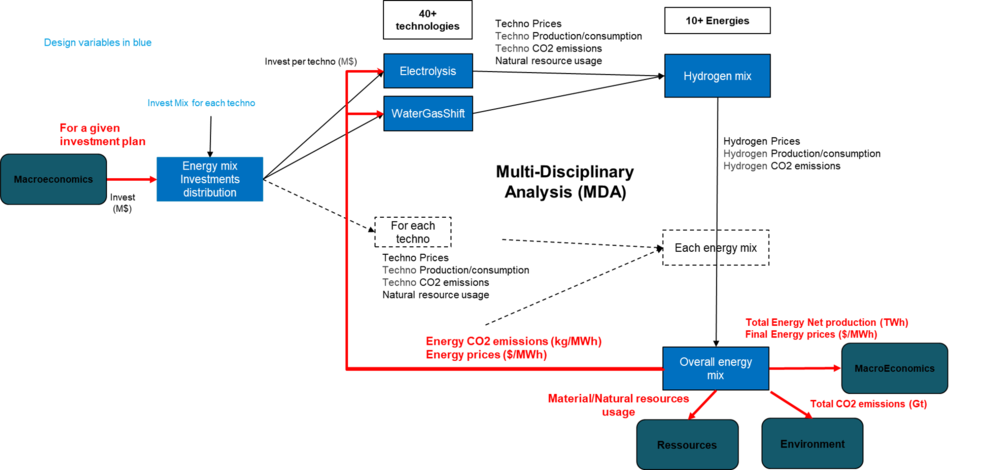Energy - WITNESS
| Corresponding documentation | |
|---|---|
| Previous versions | |
| No previous version available | |
| Model information | |
| Model link | |
| Institution | Open-Source for Climate (OS-C), N/A, https://os-climate.org/transition-analysis/., Linux Foundation (LF), N/A, https://www.linuxfoundation.org/. |
| Solution concept | Systems dynamics based approach |
| Solution method | OptimizationSimulation-based optimization |
| Anticipation | |
The energy mix discipline acts at the top of energy models, with the goal to aggregate the information arriving from each energy, calculate the net production and the CO2 emissions per kwh of energy.
Investments available are distributed among energy production, carbon capture and carbon storage technologies.
Energy production technologies are grouped by the type of energy they produce (e.g. electricity, hydrogen...) The way some intermediate energies (e.g. syngas) are produced then consumed to produce another more usable form of energy is automated, and the resulting outcome is a "net energy" mix (i.e. total energy produced minus energy used to produce energy, be it that it is transformed or used to fuel the transformation), that includes energy quantity, type, price, net emissions (emissions minus carbon captured and stored), resources consumptions...
These information are then propagated to other relevant systems such as macro-economy, resources, climate...
In the basic WITNESS framework, investments in energy are optimally split among available production technologies to maximize energy production while minimizing CO2 emission under constraints.
Individual energy production models are located here, with for each documentation on the technology and sources used to calibrate it next to the code (see "documentation folders", and select the .markdown files e.g. crop energy.
Here is a snapshot of energy types available in WITNESS :

